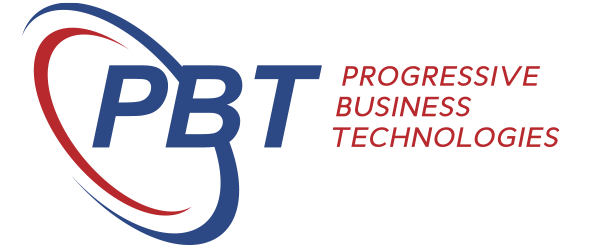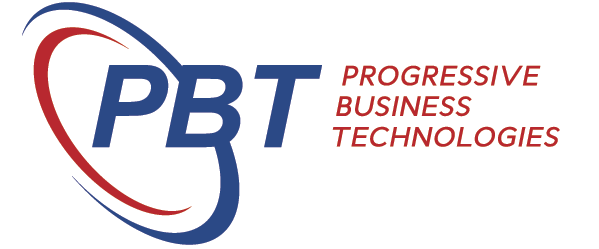Why the Price of Implementing Employment Hero HR and Payroll Varies from Partner to Partner

If you’re comparing quotes for implementing Employment Hero, you might be surprised by the price differences from one implementation partner to another. While the core software subscription remains consistent, the implementation approach, depth of service, and partner capabilities vary, and that’s where most of the cost difference lies.
Understanding what goes into a successful implementation will help you make a more informed decision than just comparing numbers on a page.
1. Different Levels of Service and Scope
Not all partners take the same approach to onboarding. Some provide a light-touch service, setting up the basics and handing over the system. Others offer a full project-managed implementation with:
- Discovery workshops to understand your HR/payroll needs
- Data migration and cleansing support
- Award and pay rule configuration
- Testing and validation cycles
- Employee onboarding and manager training
- Support during your first pay runs
Low-cost implementations often mean doing more of the work yourself, with limited guidance. This may suit smaller businesses with straightforward needs. But if you’re transitioning from a legacy system, managing multiple awards, or navigating compliance requirements, a more involved implementation model is likely to deliver better outcomes.
2. Experience and Industry Knowledge
Some partners specialise in particular industries, and their pricing reflects that added expertise. For example, partners with experience in sectors like:
- NDIS and community care (high compliance and award complexity)
- Mining and construction (project-based costing, allowances)
- Hospitality and retail (high staff turnover, complex rosters)
…often bring implementation frameworks and award templates tailored to those industries.
You’re not just paying for time, you’re paying for knowledge. A partner who understands your industry will likely configure your system faster, avoid pitfalls, and get things right the first time.
3. Customisation and Integration Capabilities
Employment Hero doesn’t always run in isolation. Many organisations require:
- Integration with finance or ERP systems (e.g. Business Central, Xero, MYOB, Sage Intacct)
- Connections to time and attendance systems (like Tanda or Deputy)
- Data syncing with existing HR systems or document management platforms
Some partners offer pre-built connectors, while others develop custom API integrations. Naturally, more complex environments will lead to higher implementation costs, but done right, they’ll save you time and effort long term.
Ask whether the partner handles integrations in-house or relies on third-party vendors, it affects both cost and support quality.
4. Training and Change Management Support
No system is successful if your team doesn’t adopt it.
Some partners simply show you where to click. Others invest in proper training programs and change management strategies, including:
- Onboarding guides for employees and managers
- Live workshops or webinars
- Cheat sheets tailored to your business
- Helpdesk support during go-live
These efforts take time and resources, but they minimise disruption and reduce internal resistance. If you’ve had poor adoption of previous systems, investing in this area can be worth every dollar.
5. Post-Go-Live Support and Accountability
One of the biggest hidden differences in implementation quotes is post-go-live support.
- Does your quote include a support window after launch?
- Will the partner assist you with your first pay runs or HR compliance tasks?
- Are changes to award rules included for a period of time?
Some lower-cost implementations hand over the system and move on. Others stay involved until your processes are stable, and forever continuing to support your environment with detailed knowledge of your configuration.
6. The Complexity and Size of Your Organisation
Finally, your own business characteristics have a direct impact on the cost and effort involved. Consider:
- Number of employees – More employees mean more onboarding, validation, and testing
- Multiple entities or ABNs – Each may require separate configurations
- Complex award interpretation – Certain awards (like SCHADS or Hospitality) require detailed setup
- Existing data and systems – Poor-quality data or legacy exports may require manual cleansing
While some businesses can be onboarded in a few weeks, others require phased rollouts, pilot groups, and weeks of configuration. A one-size-fits-all price doesn’t reflect this reality — and a good partner will take the time to assess your needs properly before quoting.
7. Revenue Models Drive Different Behaviours
One factor that isn’t often discussed openly is the way Employment Hero licensing works for partners.
Partners typically earn a commission or rebate based on the number of active employee licenses under their management. As a result, some partners focus on onboarding as many organisations as possible with minimal implementation effort, in order to maximise recurring license revenue.
This often results in:
- Stripped-back implementation offerings, where the setup is minimal and clients are expected to self-navigate the platform
- Tight limits on included services (e.g. limited pay rule configuration, no award interpretation, or capped training sessions)
- A “volume over quality” approach to service delivery
This model may work for smaller, less complex businesses that only need a basic setup, but it can leave larger or more regulated organisations exposed, especially when compliance or customisation is critical.
By contrast, consulting-led partners invest more upfront in a tailored implementation, even if it means fewer clients onboarded at once. Their focus is on long-term success, user adoption, and system optimisation, not just short-term volume.
Final Thoughts
Employment Hero is a flexible and powerful platform, but the outcome you get depends heavily on how it’s implemented.
Rather than looking for the cheapest quote, we recommend evaluating:
- The implementation methodology
- What services are included
- The partner’s industry experience
- The post-go-live support offering
The right partner will not only get you live — they’ll help you embed better HR and payroll practices that scale with your business.
Implementation Methodology Comparison
| Feature / Focus | Volume-Driven Partner | Consulting-Led Partner |
|---|---|---|
| Implementation Style | Light-touch, templated | Tailored and project-managed |
| Goal | Maximise number of licensed employees | Ensure a successful, compliant implementation |
| Included Services | Limited — often excludes award setup, testing, or training | Broad — covers discovery, config, testing, training & go-live |
| Pay Rule / Award Interpretation | Often excluded or provided as an optional extra | Included where required, based on industry and workforce needs |
| Training & Change Management | Minimal or generic materials | Role-based training, custom guides, ongoing support |
| Post-Go-Live Support | Limited or none | Included — supports first pay runs and issue resolution |
| Integration Support | Rare or outsourced | In-house or scoped into the project |
| Quote Price | Lower upfront | Reflects full scope and quality assurance |
| Best Suited For | Small, simple businesses with few compliance risks | Medium to large, multi-award, or compliance-heavy organisations |
| Risk of Rework or Misuse | High — system underused or misconfigured | Low — system optimised and staff trained from day one |
Ready to talk about implementing Employment Hero?
Don’t settle for a basic setup that leaves your team unsupported and your compliance at risk.
Let’s chat about how a tailored implementation with a partner who understands the NDIS sector can set your organisation up for long-term success.


